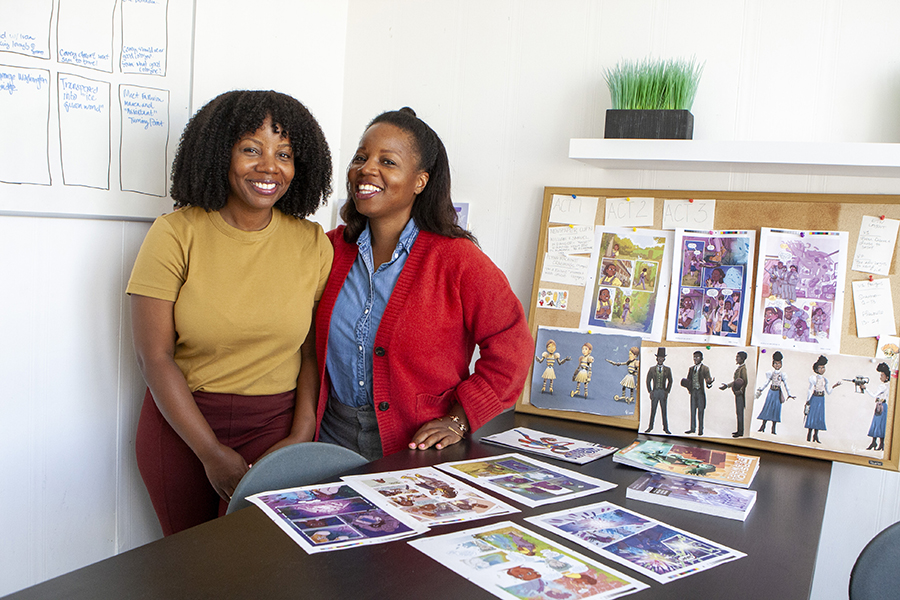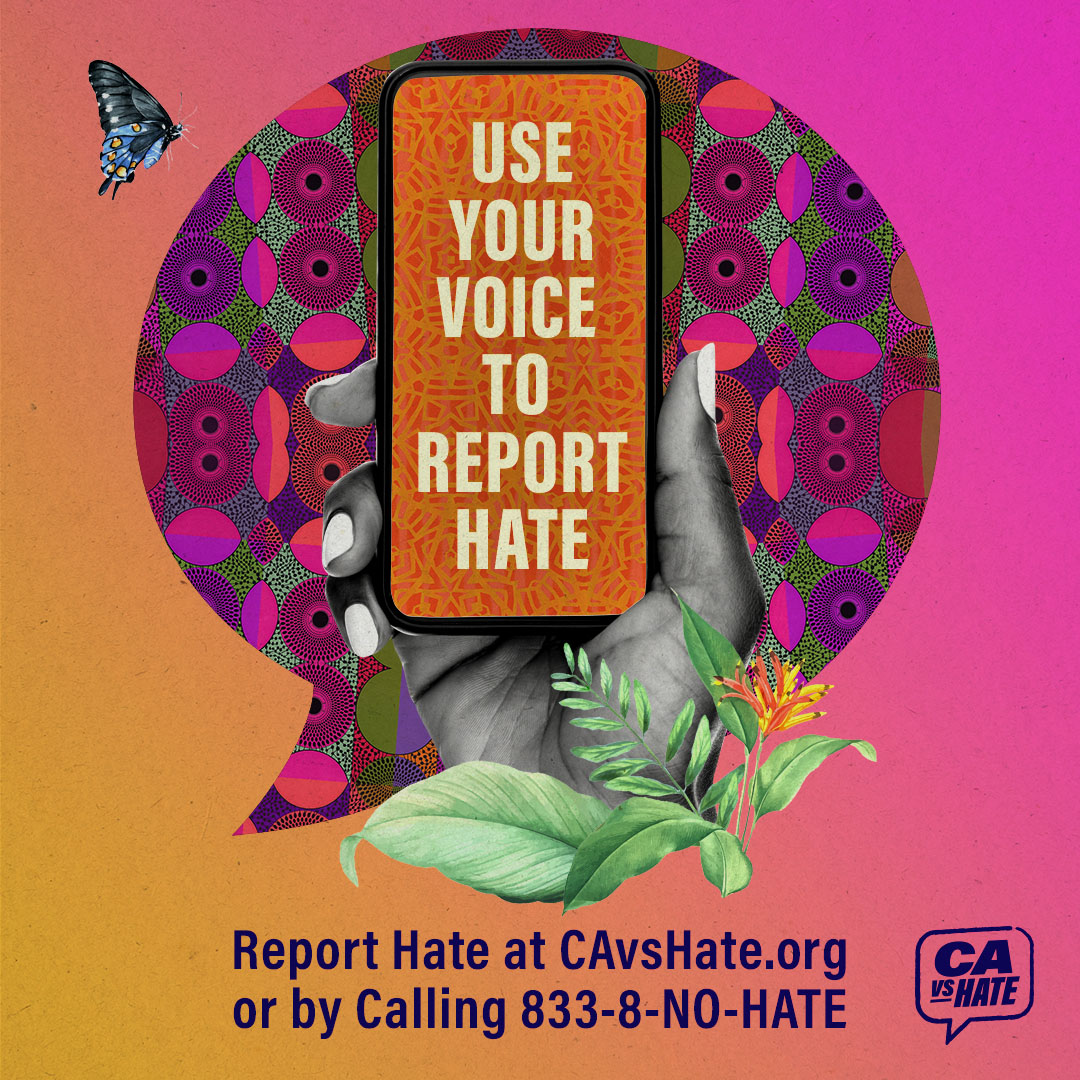From Oakland to Los Angeles, twin sisters Shawneé and Shawnelle Gibbs write and produce comics, television and animated series.
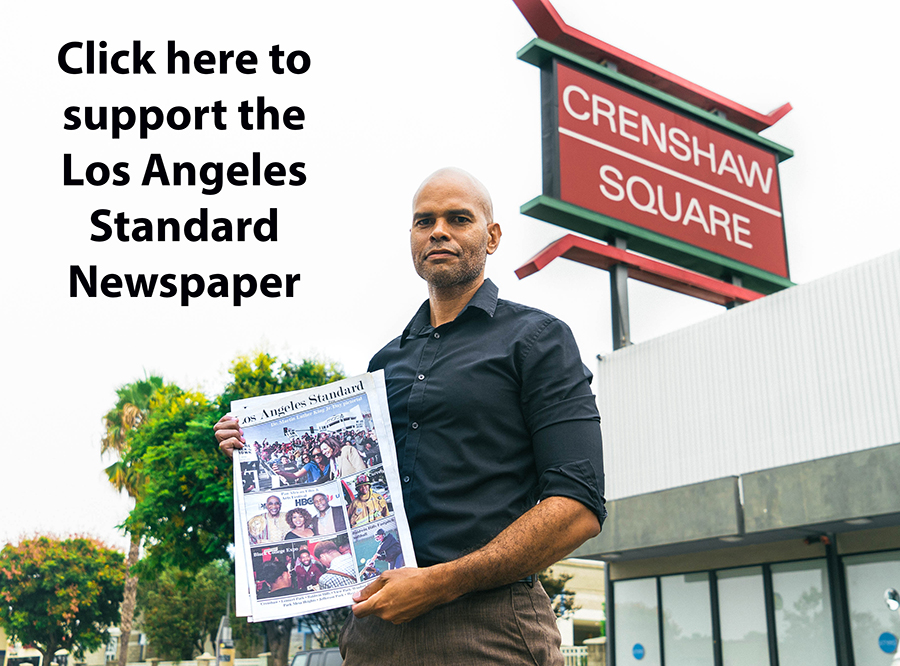
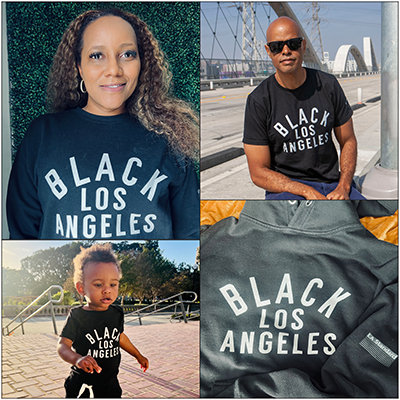
By Jason Lewis
The Gibbs sisters have worked their way into an industry that historically has not seen very many Black or women creators. Through hard work and determination, they have created their own comic book series, and they have produced content for entertainment titans such as Warner Brothers Animation, Marvel Comics, Bravo, National Geographic, and the Food Network.
The Gibbs sisters have worked in Los Angeles since the early 2000s, but their journey started in Oakland. Like many Black creators, they infuse Black themes into their work. A lot of those themes came from their upbringing as they were heavily influenced by the Black Power Movement and Black music in the Bay Area.
“Oakland was a big influence on who we are and what we do,” Shawneé said. “Oakland and the Bay Area is a special place. Like every city, it has its own vibe, and Oakland definitely has a special heartbeat. It just moves different. We’re the children of the Black Power Movement folks. Huey P. Newton, founder of the Black Power Party in Oakland, was a big deal. There’s so much music like the Pointer Sisters, Sly and the Family Stone, MC Hammer, Too Short, E-40. There’s an independent spirit. There’s a spirit of people fighting for change. That influenced us. When we grew up Black was beautiful so we were encouraged to see the world through our own special lens.”
The sisters watched Saturday morning cartoons, and they discovered comics through the Sunday morning newspaper. They were influenced by Morris “Morrie” Turner, who was a pioneering Black cartoonist and the creator of “Wee Pals.” He was the first Black cartoonist to be syndicated nationally. The sisters were also influenced by their mother, who is an artist who taught them how to draw and surrounded them with art.
“We grew up in North Oakland, and we used to go to the Ashby Flea Market where there was music, rhythm, drums,” Shawnelle said. “Our mother would take us there for discounted books, and we’d run to this one stand that had lots of learning how to draw materials and books. That helped us build up our skills in illustration. A lot of the work that we do now, we partner with artists. But growing up, we did a lot of the art ourselves.”
As children they would create their own comic strips and sell them to classmates for 25 cents. They studied journalism in high school and created content for their school’s newspaper. They were also DJs on a youth radio program.
After high school the sisters attended Laney College in Oakland and then San Francisco State University where they majored in filmmaking and cinema. After they graduated, they moved to Los Angeles in 2004 because at the time the Bay Area did not have a large enough entertainment industry to support their talents. Even though they had few resources, they took a major chance on themselves.
“We packed up and drove to Los Angeles with no prospects,” Shawneé said. “We might have had three months of savings. We had to find work in three months and we’ve been here ever since.”
Even though they have been working, they had early struggles when the arrived in Los Angeles.
“We thought that we would just knock on the door and pitch our project,” Shawnelle said. “We did have some meetings with some executives and we heard some things that were disheartening at the time. The window of opportunity for Black stories and Black content for kids just was not open at the moment. And we were told to our faces by an executive at a major children’s media company that ‘we’re making content for 10-year-old White boys.’ We knew that we were going to be telling our stories, so we went the independent route.”
Today there is a much larger network of Black creators who are succeeding in Los Angeles, which helps people break into the industry. But that network was not built up when the sisters moved to Los Angeles.
“It was harder to find out where to go, how to get hired,” Shawneé said. “It was more of a secret society. Thank goodness that today there is the Internet and more resources about how to get into the industry. It’s a lot better now, but back in the day it was like you had to go to the library to get a book to find out who the agents were. You had to get a Thomas Guide and drive around. It was a difficult time and people were just not open to stories from people like us.”
The sisters were able to find work in television production, which sustained them while they began building a name in the indie comics industry. Their first comic book series was “Fast Forward.” They successfully kick-started an African-American steampunk comic, “The Intervention of E.J. Whitaker.” Not long after, the comics and animation industry began to take notice.
The writing team since has penned projects for Dreamworks Animation (“Not Quite Narwhal”), Cartoon Network (“Jessica’s Big Little World”), HBO Max (“Little Ellen”), Mattel (“Barbie: It Takes Two” and “Barbie: Mermaid Power”), and many others. Now the Gibbs Sisters have entered the world of traditional publishing with their next project – the release of their first graphic novel, “Ghost Roast.”
The sisters infuse Black culture throughout their comic series, and they create time-period pieces that touch on the struggles that Black people have endured in the United States.
“It (Black culture) has always been a foundation of our work, because it’s who we are and where we’re from,” Shawnelle said. “Even when we were writing “Ghost Roast,” there were areas of New Orleans that we wanted to make sure that we visited. We did extensive research and we spent time there so that even with our own personal narrative and story, a lot of this story is from New Orleans.”
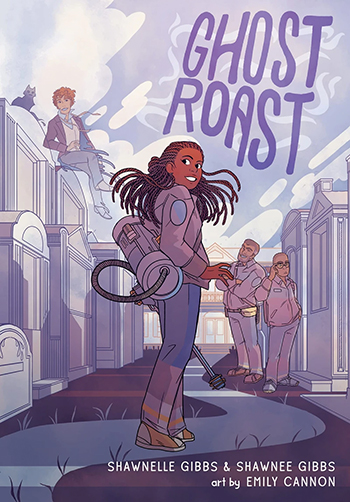
As comic book creator John Jennings said in an article that was published in the February 2023 edition of the Los Angeles Standard Newspaper, there is a current renaissance for Black comic book creators.
“People like John Jennings are creating space for people like us to thrive; to speak to our readers and audiences,” Shawnelle said. “The Black comics returns series that he did with Damian Duffy was amazing. That collaboration helped to showcase a lot of new voices in comics, including us.”
“More creators have stepped forward to tell their own stories using their own voice,” Shawneé said. “Before, back in the day, to work people had to draw characters that were already established. Especially in the ‘90s with Milestone (founded by Black artists and writers), people got out there and said that these are Black characters that we are pushing to the forefront. They’re going to sound Black. They’re going to be Black. We’re not going to shy away from what that looks like. I feel that before to get through the door, you had to contort yourself, and I feel like now it’s an empowered generation. The people who kicked the door open said we’re telling these kind of stories. I’m thankful for the independent movement. And even the fact that we came through independently. It allowed us to create the playground and say that we’re bringing our whole selves to the table.”
For more information about the Gibbs Sisters, visit www.gibbssisters.com and follow them on social media.


